- Home
- Kathryn Lasky
Elizabeth
Elizabeth Read online
Contents
Cover
Title page
England 1544
1 July, 1544 Greenwich Palace
2 July, 1544
Later
3 July, 1544
4 July, 1544
5 July, 1544
10 July, 1544 Hatfield
11 July, 1544
12 July, 1544
13 July, 1544
14 July, 1544
15 July, 1544
17 July, 1544
20 July, 1544
22 July, 1544
24 July, 1544
28 July, 1544
1 August, 1544
7 August, 1544
8 August, 1544
9 August, 1544
10 August, 1544
Later
11 August, 1544
12 August, 1544
13 August, 1544
20 August, 1544 Elsynge Palace
23 August, 1544 Hampton Court
25 August, 1544
26 August, 1544
27 August, 1544
28 August, 1544
29 August, 1544
30 August, 1544
1 September, 1544
2 September, 1544
4 September, 1544
5 September, 1544
7 September, 1544
8 September, 1544
10 September, 1544
14 September, 1544
15 September, 1544
19 September, 1544
20 September, 1544
21 September, 1544
22 September, 1544
Later that evening
Still later
23 September, 1544
24 September, 1544
25 September, 1544
26 September, 1544
27 September, 1544
28 September, 1544
30 September, 1544
1 October, 1544
3 October, 1544
5 October, 1544
6 October, 1544
7 October, 1544
10 October, 1544 Whitehall Palace
11 October, 1544
12 October, 1544
14 October, 1544
15 October, 1544
Later
16 October, 1544
17 October, 1544
18 October, 1544
20 October, 1544
21 October, 1544
22 October, 1544
24 October, 1544
Later
25 October, 1544
Later
26 October, 1544
27 October, 1544
28 October, 1544
29 October, 1544
Later
30 October, 1544
31 October, 1544
2 November, 1544
3 November, 1544 Whitehall Palace
5 November, 1544
7 November, 1544
8 November, 1544
10 November, 1544
11 November, 1544
16 November, 1544 Ashridge House
17 November, 1544
19 November, 1544
21 November, 1544
23 November, 1544
25 November, 1544
28 November, 1544
29 November, 1544
5 December, 1544
9 December, 1544
12 December, 1544
13 December, 1544
15 December, 1544
20 December, 1544
21 December, 1544
22 December, 1544
26 December, 1544 Hampton Court
27 December, 1544
28 December, 1544
31 December, 1544
1 January, 1545
3 January, 1545
7 January, 1545
8 January, 1545
9 January, 1545
11 January, 1545
14 January, 1545
18 January, 1545 Enfield Palace
26 January, 1545
30 January, 1545
31 January, 1545
12 February, 1545
13 February, 1545 Elsynge Hall
14 February, 1545, Saint Valentine’s Day Noon
Later
15 February, 1545
19 February, 1545 Enfield Palace
22 February, 1545
24 February, 1545 Hatfield
25 February, 1545
Later
27 February, 1545
28 February, 1545
3 March, 1545
7 March, 1545
8 March, 1545
9 March, 1545
10 March, 1545
20 March, 1545
21 March, 1545
Later
22 March, 1545
24 March, 1545
25 March, 1545
26 March, 1545
27 March, 1545
28 March, 1545
29 March, 1545
5 April, 1545 Windsor Castle
9 April, 1545
10 April, 1545
12 April, 1545, Easter Sunday
19 April, 1545
20 April, 1545
25 April, 1545 Greenwich Palace
27 April, 1545
28 April, 1545
29 April, 1545
30 April, 1545
1 May, 1545
2 May, 1545
8 May, 1545
10 May, 1545
1 September, 1545
2 September, 1545
6 September, 1545
7 September, 1545
16 September, 1545
25 September, 1545 Woodstock
27 September, 1545
28 September, 1545
1 October, 1545
3 October, 1545
8 October, 1545 Whitehall Palace
10 October, 1545
11 October, 1545
15 October, 1545
17 October, 1545
22 October, 1545
25 October, 1545
26 October, 1545
3 November, 1545
7 November, 1545
9 November, 1545
10 November, 1546
11 November, 1545
13 November, 1545
18 November, 1545 Westminster Palace
19 November, 1545
20 November, 1545
21 November, 1545
26 November, 1545
27 November, 1545
28 November, 1545
15 December, 1545 Greenwich Palace
16 December, 1545
19 December, 1545
24 December, 1545
Later
26 December, 1545
Still later
27 December, 1545
6 January, 1546
7 January, 1546
9 January, 1546
18 January, 1546 Hatfield
19 January, 1546
23 January, 1546
26 January, 1546
1 February, 1546
Later
10 February, 1546
14 February, 1545
18 February, 1546
4 March, 1546
Later
12 March, 1546
15 March, 1546
19 March, 1546
21 March, 1546
22 March, 1546
27 March, 1546
5 April, 1546 Windsor Castle
8 April, 1546
15 April, 1546
20 April, 1546
25 April, 1546 Hampton Court
28 April, 1546
3 May, 1546
5 May, 1546
6 May, 1546
12 May, 1546
16 May, 1546
17 May, 1546
Later
19 May, 1546
24 May, 1546
<
br /> 25 May, 1546
30 May, 1546
4 June, 1546
6 June, 1546 Whitehall Palace
11 June, 1546
25 June, 1546
4 July, 1546
10 July, 1546
Later
11 July, 1546
20 July, 1546 Ashridge
25 July, 1546
23 December, 1546 Enfield
24 December, 1546
25 December, 1546
18 January, 1547
19 January, 1547
21 January, 1547
28 January, 1547
29 January, 1547
31 January, 1547
1 February, 1547
5 February, 1547
10 February, 1547 Whitehall Palace
Later
13 February, 1547
16 February, 1547
28 February, 1547 Enfield
3 March, 1547
Epilogue
Historical note
The Tudor family tree
My Royal Story – a series
Copyright
England
1544
1 July, 1544
Greenwich Palace
I am a forgotten princess.
At times my father, King Henry VIII, needs to forget me. When the King needs to forget, the whole court follows suit and I am usually exiled to Hatfield. I don’t mind. Hatfield is lovely. It is more of a mansion than a Palace, cosy, red brick with a huge forested hunting park. But when one is in exile, one is not treated the same. Everything is different.
Now, thank goodness, I am back at Court after nearly a year of being banished. The dear Queen, Catherine Parr, convinced my father to bring me back from Hatfield. She told him that he must see me before he goes off to France. She is very kind, this new mother of mine.
Kat, my governess, gave me this diary just this morning. It is bound in leather and embossed with the Tudor rose, the symbol of my family. As soon as I opened it and touched its creamy white pages, I knew that it was the perfect companion for me, a forgotten princess. Within these leather covers I can commit my most private and utmost secret thoughts. It is here that I shall speak my mind. There will be no flourishes of words and language. I shall call the King Father, for that is what he is, and not use language such as Sire and Your Majesty, the way one must write in letters or speak in Court.
And because these thoughts are so secret, they must never be read and forever be hidden. Here, at Greenwich Palace, there is a loose stone under the bed in my chamber where I shall keep this diary. But I live in many palaces, as the court is always moving. So I must find equally secret places wherever I am. My candle burns down low. I do not know why they give me these short, slender candles. I need some of those fat tapers they use to light the hallways and corridors. My chamber is so large here, too large really to be cosy. The candle casts the smallest pool of light. I write by a narrow slit of a window through which only a piece of the moon can shine and a single star. So I must blow out the candle and wait for the break of day and new light.
Goodnight.
2 July, 1544
The light this early in the morning is pink and is enough by which to read and write. But to whom am I writing here on this blank page? To whom am I speaking when I speak to an empty piece of vellum?
Do you know who I am? I shall tell you. I am Elizabeth, Princess of England, daughter of Henry VIII and his wife Anne Boleyn. I am eleven years old. My mother, once Queen, is now dead. Almost eight years ago, when I was not yet three, Father chopped off her head. Not he himself. He ordered it done. Indeed, he sent for a French swordsman. They are skilled in beheading, and it hurts less with a sword than with an axe, or so they say. It is not as if anyone has come back to speak on the matter.
I hear Kat rustling in the adjoining chamber. The servitor has come with breakfast no doubt. I hope it is not the cold rabbit pie again. I am sick to death of rabbit pie. I am not hungry anyway. I am by my window, watching Father mount his horse and take a turn in the yard below. Father is quite, no, very fat. Because of his weight and the terrible sores that afflict his legs and make them swell, he can no longer mount a horse by himself. He requires four attendants and a crane to get him onto his horse in full armour. It is almost as exciting as watching a tournament to see him being cranked up and then lowered onto his horse.
Later
It was rabbit pie, but Kat didn’t make me eat it. She didn’t eat it, either. She sniffed it in that special way she has. The very tip of her long bony nose takes on a life of its own and begins to twitch. Then the fatal words: it is off. “Off” means rancid, spoiled. So we just ate cheese and bread and drank cider.
In two days’ time, Father leaves for France, which he is invading. He will ride to Dover and then cross the Channel to Calais. Her Majesty Catherine Parr, his sixth wife, promises that she will do all she can to permit us, the children, to accompany the royal party as far as Dover so we can see him off. That will be an even greater spectacle with ten thousand men and drummers and trumpeters.
Oh! Oh! Finally, Father is on the horse! He canters off round the yard. “Hooray! Hooray!” they all cry. Then, “Hal! Hal!” My father’s fool, Will Somers, shouts. Will is the only one to call him Hal. Yes, he is a sight, my father. The Sun glints off his armour. He is like a mountain of silver – gleaming and huge.
3 July, 1544
So, dear Diary, I read my last words, My father glints like a mountain of silver. And I, looking down upon him yesterday, was like a slim shadow in the window. For you see I am not only often forgotten but nearly invisible. I promised I would tell you all. Well, here is the start of my story of invisibility, of being forgotten.
I have had five mothers in all. I have liked them all. I did not know the first of my father’s six wives. But I have liked all the others. They do, however, run together in my head. I barely remember Jane Seymour, Prince Edward’s mother. I was but four when she died. I cannot talk of Catherine Howard. She was so beautiful and young. More like a playmate than a mother. But I cannot bear to tell of her end, not now at least. It was too awful. I was old enough to remember, unlike with my mother.
Just before Catherine Howard, there was Anne of Cleves. A very jolly sort. She is German and speaks in great guttural gushes, often spraying spit. That and the fact she looks like a horse, or so my father said, made for a very short marriage. Father “un-wifed” her. He does not like the term “divorce”. But they are friends still, rather like sister and brother. She is here now at Greenwich and shall go to Dover with all of us. It will be a jolly affair sending Father off to war. Really jolly if Princess Mary wouldn’t come. I do wish that as sisters Princess Mary and I were as fond of each other as Father and his “sister” Anne of Cleves. Princess Mary is twenty-eight, and all she ever does is pray, and she never smiles.
Father likes to forget Princess Mary sometimes, too, for she reminds him of his first wife, Catherine of Aragon. Somewhere between all these wives I became invisible, because I was part of something he wanted very badly to forget, too. He likes to think, or indeed he passes decrees that say, that Mary and I are bastards, children of what he insists were illegal marriages, and therefore we could never be Queens of England and rule.
But Catherine Parr changed all that. Now it is said that when Father dies Edward, our little brother, who is just six, shall become King. Then if Edward dies, Princess Mary will be Queen, and if Mary dies, I shall rule. This will not happen. I am third in line and Edward seems healthy to me, although Father thinks Edward is too fat! Is that not funny? My father is the fattest person in the realm and he is calling Edward, who is a trifle plump, fat. Some might think our family is quite confused or mad. That last sentence could be considered treasonous. The punishment for treason is beheading. And I for one would find a French swordsman little comfort. You see why I must hide you.
That, in short, is my story of how
I became invisible. I doubt I shall ever be queen, for it is very difficult for an invisible princess to wear a crown. I suppose by the same token it might be difficult to behead an invisible princess. But I am my father’s daughter. I do look the most like him and though I am not nearly of his size, I am of his stature. One does not have to be huge to have a stature and a bearing that is royal. Mary does not. Edward, well, Edward is so frail, even if Father thinks he’s too fat. I want to be Queen. I think I am smart enough to be Queen. I know I am smart enough. This is not pride. I simply know what I know. But what does it all mean if I remain a slim shadow in a palace window?
4 July, 1544
I cannot believe what has happened. I am not to go to Dover. I am to be sent forthwith to Hatfield. Everyone else is going – Prince Edward, Princess Mary, Anne of Cleves, the Queen and all her ladies, and dear Robin Dudley! My time at Hatfield would be so much more cheerful if Robin were there, but why should he suffer for me? Robin is my best friend. He is the son of John Dudley, one of my father’s closest advisers in the Privy Council and, in fact, commander of the fleet in the campaign against France. So of course he would not miss a chance to see his father off and his father would not banish him like mine has just done to me! Robin dreams, I am sure, of going on campaign someday against the French. It is every knight’s dream, and Robin will be a knight, more surely than I shall ever be Queen.
Here is what happened. It was last evening and we were all in the Great Hall for a festive banquet, the last before the campaign. My father likes his amusements, so Will Somers, his fool, had come to tell each of us children to prepare a musical piece to perform. I myself play the table harpsicord – also called the virginal. I usually favour Father with one of the compositions that he has written, such as “Greensleeves,” and then he asks if I have composed anything new. Well, I had, so I played it, but I did not sing the words. “Oh, do sing it, Elizabeth,” he said. Well, a King does not have need to press. He commands. So I sang reluctantly, for I knew that the lyrics could be thought of as troublesome. Could – not necessarily would.
Robin clad in green did come to see the queen.
And sitting by the throne
two Princesses were shone.
Hey, nonny, nonny. Hey, nonny, nonny.
One in shadows glowed despite her lack of gems.
The other in the Sun looked verily so glum.
Father erupted. He felt the words a terrible insult. That I was fretting about Mary getting to be Queen before myself. That I was an ungrateful wretch! “Enough,” he said in that low deadly voice that stops everything. I swear even the birds shut their beaks. A terrible silence descended on the room. It was all I could do to keep from crying. I was sent to my apartments. Half an hour later, Sir Anthony Denny, a groom of the Privy Chamber, came to inform me that I would be going to Hatfield forthwith.

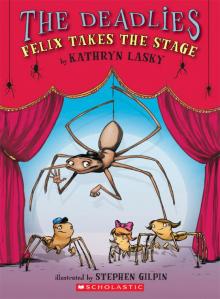 Felix Takes the Stage
Felix Takes the Stage Lucy
Lucy Lone Wolf
Lone Wolf Broken Song
Broken Song The Shattering
The Shattering The Crossing
The Crossing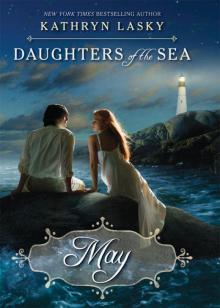 May
May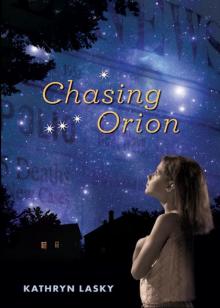 Chasing Orion
Chasing Orion Star Rise
Star Rise The River of Wind
The River of Wind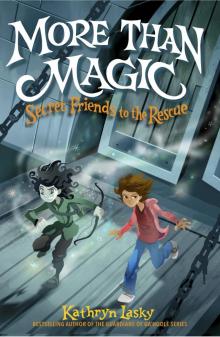 More Than Magic
More Than Magic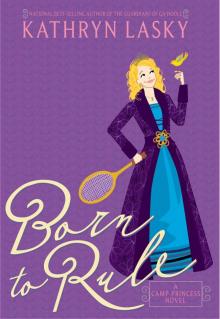 Born to Rule
Born to Rule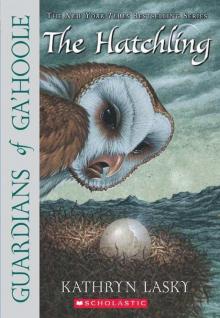 The Hatchling
The Hatchling The Rescue
The Rescue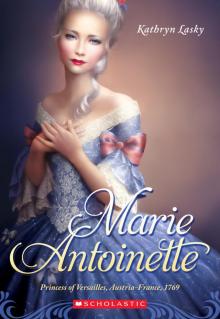 Marie Antoinette: Princess of Versailles, Austria - France, 1769
Marie Antoinette: Princess of Versailles, Austria - France, 1769 The War of the Ember
The War of the Ember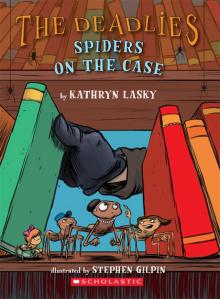 Spiders on the Case
Spiders on the Case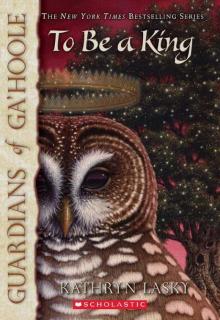 To Be a King
To Be a King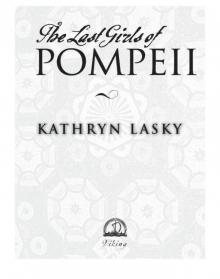 The Last Girls of Pompeii
The Last Girls of Pompeii The Outcast
The Outcast Exile
Exile Night Witches
Night Witches Spirit Wolf
Spirit Wolf The Quest of the Cubs
The Quest of the Cubs Frost Wolf
Frost Wolf The Keepers of the Keys
The Keepers of the Keys The Extra
The Extra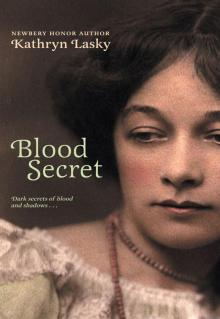 Blood Secret
Blood Secret Watch Wolf
Watch Wolf Blazing West, the Journal of Augustus Pelletier, the Lewis and Clark Expedition
Blazing West, the Journal of Augustus Pelletier, the Lewis and Clark Expedition The Capture
The Capture The Burning
The Burning The Journey
The Journey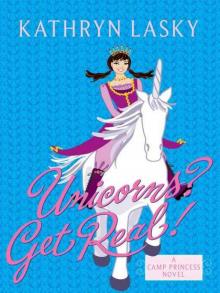 Unicorns? Get Real!
Unicorns? Get Real! The Escape
The Escape Star Wolf
Star Wolf Ashes
Ashes Wild Blood
Wild Blood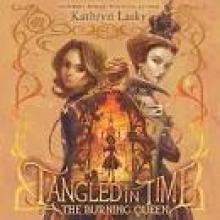 Tangled in Time 2
Tangled in Time 2 The Siege
The Siege Hannah
Hannah Elizabeth
Elizabeth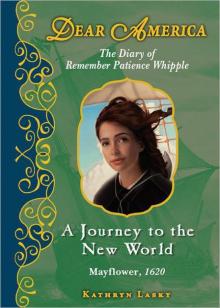 A Journey to the New World
A Journey to the New World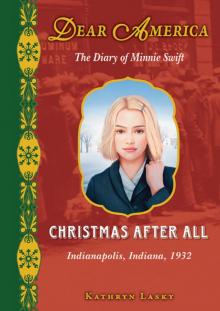 Christmas After All
Christmas After All Mary Queen of Scots
Mary Queen of Scots